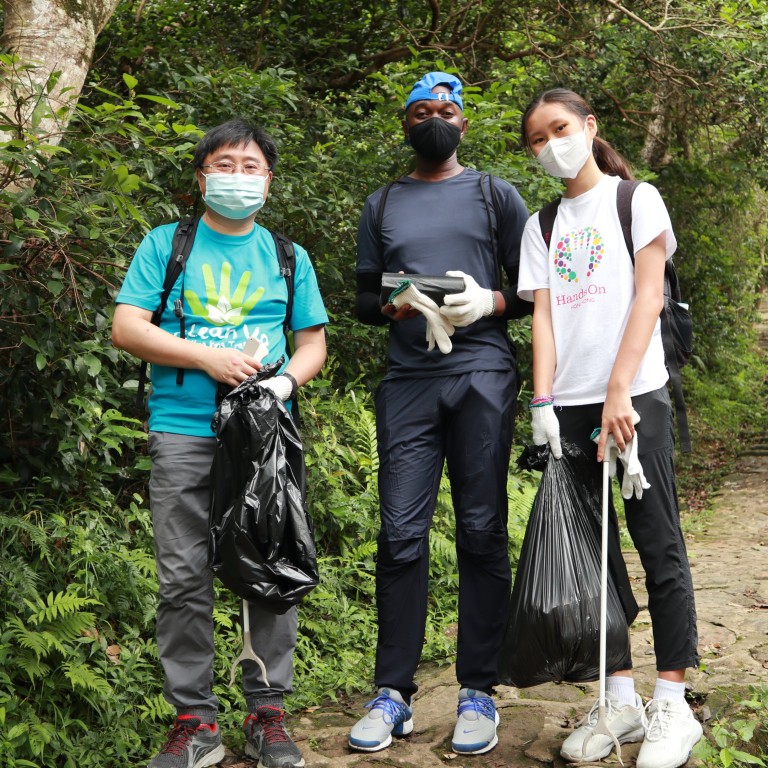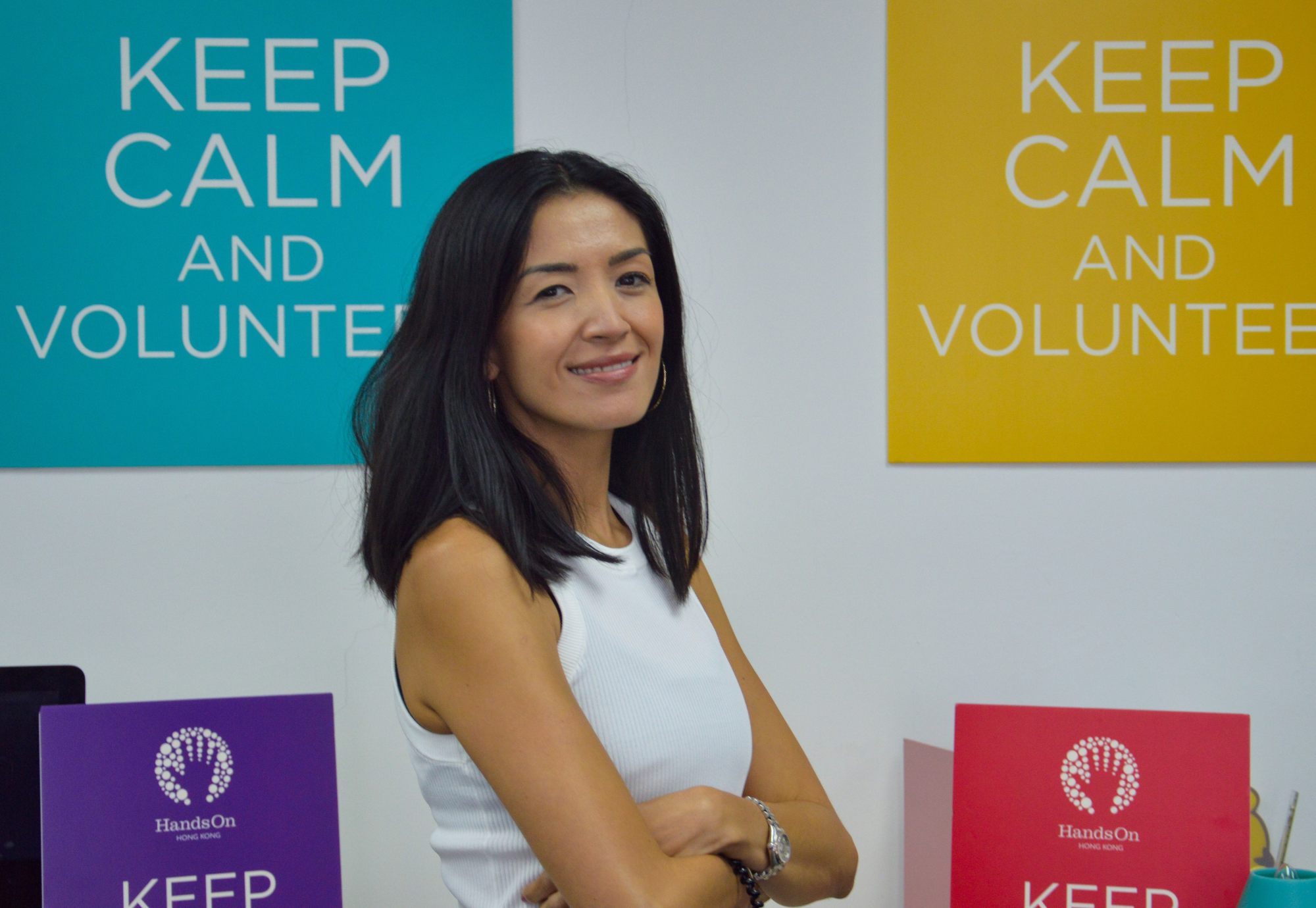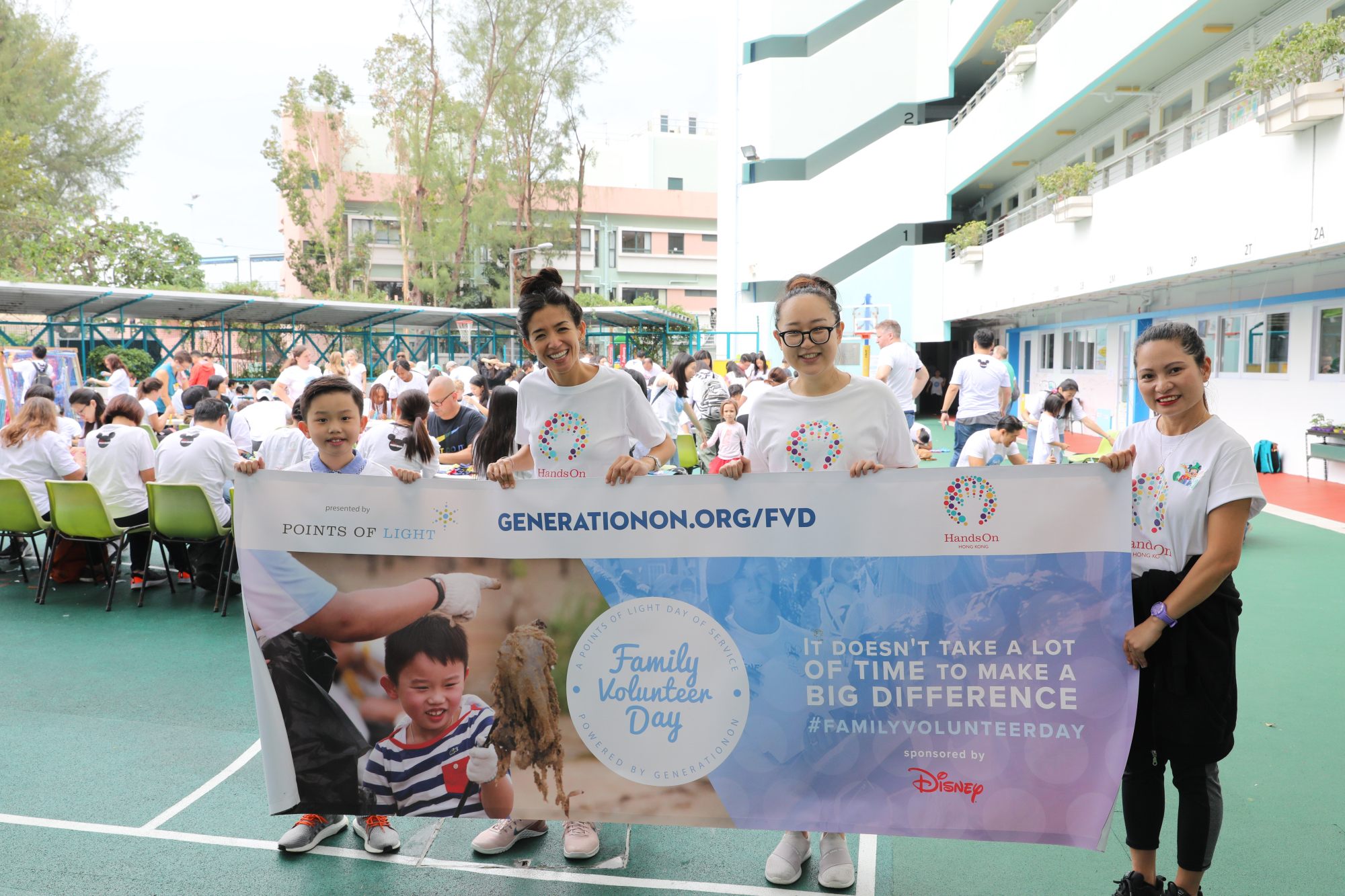
How volunteering benefits your mental health and self-esteem as well as others: Hong Kong volunteers’ stories
- Volunteers describe how taking part in activities run by local charity HandsOn has given them a welcome boost after the hardships of the pandemic
- HandsOn, which runs a wide range of activities in both Cantonese and English, has seen a surge of interest since the beginning of Covid-19
The pandemic has chipped away at everyone’s mental health. For 15-year-old Faith Hui, the many months of online schooling in Hong Kong, separated from classmates and friends, left her feeling lonely and disconnected.
She put her hand up for voluntary work to do something for the community. What she didn’t expect was the boost it would give her own emotional well-being and mental health.
“I got to meet new people, which was good for me. It expanded my social circle and I wasn’t as lonely,” says Faith, a student at Victoria Shanghai Academy.
How volunteering is helping Hongkongers improve their mental health
“It kept me mentally stimulated and added depth to my life. The volunteering meant quite a bit of work, but it didn’t feel like a weight on my shoulders. It was taking off, taking away the loneliness of the fifth wave [of the pandemic in Hong Kong] and lifting my spirits,” she says.
The local charity, HandsOn Hong Kong, which organises more than 200 volunteer activities a month for both Cantonese and English speakers, has seen a surge of interest since the beginning of the pandemic, going from about 30,000 volunteers in its database to 44,000.
Speak up, guys. We’re all hurting during Covid-19 – want to talk about it?
The numbers are likely to surge again this week as HandsOn launches the sixth edition of its annual community-service week, Serve-a-thon, mobilising thousands of volunteers to support the community through nine days of consecutive volunteering from June 18 to 26. Opportunities include writing gift cards for care packages, helping children with their homework, sorting used clothing, assisting in sports training for those with special needs, and organising food drives.
HandsOn’s recent survey of volunteers found that 73 per cent got involved because they wanted to help people – no great surprise. What they didn’t expect to find was that 59 per cent of volunteers said they were doing it to support their own well-being, too – particularly, in seeking happiness, gratitude and a sense of purpose.
“People who have never volunteered before are volunteering now,” says Catherine Dannaoui, deputy executive director at HandsOn Hong Kong. “It’s becoming part of the fabric of people’s self-care and at the same time caring for the community because times are still tough here. The poverty level is the highest rate since records began.”

The social restrictions imposed by the pandemic – and which continue in varying degrees in Hong Kong – mean fewer opportunities to go out and meet friends, and less chance of taking part in meaningful activities. Volunteering addresses both those issues, boosting our mental health. It could also help lessen the impact of a looming mental health crisis that has been predicted to hit in the pandemic’s aftermath.
We are more likely to feel traumatised if we feel hopeless and helpless, but if we are able to take part in activities where we feel like we are making a positive difference, no matter how small, we are likely to weather the storm better.
A Hong Kong study conducted by consumer research firm Nielsen in 2018 examined the impact of volunteerism on mental health. It found that 83 per cent of people believed volunteering improved their mental health and well-being, while 74 per cent said it boosted their self-esteem.
“We’ve never thought of volunteering as a one-way process,” Dannaoui says. “Everyone is a participant, and everyone has some way to benefit from it.”

For education specialist Huseina Tyebkhan, the pandemic saw her work opportunities crushed. She’d come across HandsOn in 2017 as the school director of the International Academy for Film and Television, when students filmed the Serve-a-thon. With time on her hands, she decided to try it herself.
Joining activities on average twice a month over the last two years, she has done everything from deliver food to the elderly and wash vegetables from the market to advise domestic helpers of their rights and teach English online. Through this she has met a wide range of people and enjoyed the opportunity to have social contact without the demands that can come with socialising in your usual network.
“I enjoyed going to activities and not knowing people, just focusing on the activity,” Tyebkhan says. “When you are going through a challenging time you may not want to talk about things. Volunteering, I can be involved, make a contribution and have a sense of purpose.”
Last year more than 7,000 people joined our programmes. It’s become part of daily life – you go for a hike, go on staycation, go volunteer
Volunteering also helped her gain perspective on her own life and worries.
“I was concerned about the fact my work had come to a basic standstill and the anxiety that comes with that. And then you meet people and it hits you in the face that people are under much greater pressure than I am, whether it’s their economic challenge or kids with tremendous difficulties. It’s humbling.”
She is also grateful that her volunteer activities have given her something different to discuss other than the usual pandemic-time questions such as what the new social-distancing rules are and where to do quarantine.
“It was an opportunity to share with people, to tell them what I was doing, something out of the ordinary, and not worrying about the quarantine rule. Being able to talk about other things was great for my own mental health,” she says.
Nearly half of Hongkongers surveyed suffer ‘moderate to severe’ anxiety
As part of the Bohras, a Muslim group, volunteering is a strong part of Tyebkhan’s culture. Growing up, her family always volunteered, and she recalls as a child helping build toilets in Hong Kong’s New Territories.
“There are things I’m doing all the time that would fall under the category of pro bono work, but it’s just the way of life,” she says.
Whether volunteering was something you were brought up doing or came to during the pandemic, it’s likely it will become part of the fabric of your life once you start, research suggests.
“A study by Nielsen found that once you volunteer, it’s a two out of three chance that you will return,” Dannaoui says.
“We are seeing more people come back. Last year more than 7,000 people joined our programmes. It’s become part of daily life – you go for a hike, go on staycation, go volunteer.”

